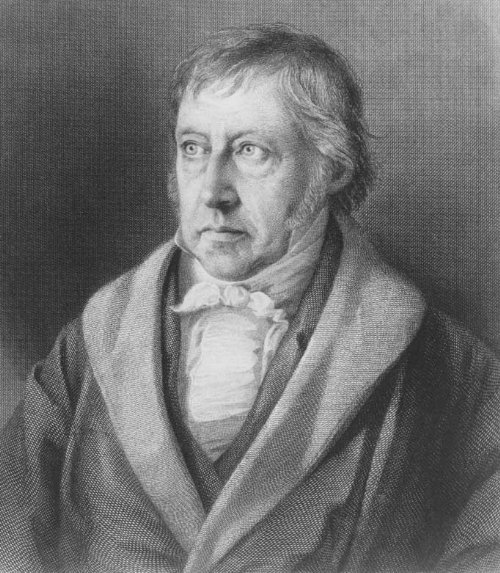
Georg Wilhelm Friedrich Hegel (1770-1831)
On August 27, 1770, German theological philosopher Georg Friedrich Wilhelm Hegel was born, who is counted as the creator of German idealism. For many historians, Hegel is “perhaps the greatest of the German idealist philosophers.” In 1847 the London Communist League including Karl Marx and Friedrich Engels used Hegel’s theory of the dialectic to back up their economic theory of communism. Now, in the 21st century, Hegelian-Marxist thinking affects our entire social and political structure.
“Not curiosity, not vanity, not the consideration of expediency, not duty and conscientiousness, but an unquenchable, unhappy thirst that brooks no compromise leads us to truth.
— G. F. W. Hegel, Nürnberg, Sep. 30, 1809; Schrieb’s zum Andenken (written to remember)
A Voracious Reader
Hegel was born in Stuttgart nd grew up in a Pietist home. His father Georg Ludwig (1733-1799), born in Tübingen, was Rentkammersekretär (secretary to the revenue office) at the court of Karl Eugen, Duke of Württemberg and came from a family of civil servants and pastors. Hegel’s mother, Maria Magdalena Louisa Hegel (née Fromm, 1741-1783), came from a wealthy family in Stuttgart. When Hegel was eleven his mother died of a “bilious fever” (Gallenfieber) while he and his father who also caught the disease narrowly survived. At the age of three Hegel went to the “German School”. When he entered the “Latin School” aged five, he already knew the first declension, having been taught by his mother. In 1776 Hegel entered Stuttgart’s Gymnasium Illustre. During his adolescence Hegel read voraciously, copying lengthy extracts in his diary. Authors he read include the poet Friedrich Gottlieb Klopstock and writers associated with the Enlightenment such as Gotthold Ephraim Lessing.
French Revolution and Kantian Philosophy
In 1788 Hegel entered the Tübinger Stift (a Protestant seminary attached to the University of Tübingen), where two fellow students were to become vital to his development – the poet Friedrich Hölderlin [3] and the younger philosopher-to-be Friedrich Wilhelm Joseph Schelling. Sharing a dislike for what they regarded as the restrictive environment of the Seminary, the three became close friends and mutually influenced each other’s ideas. They watched the unfolding of the French Revolution with shared enthusiasm. Schelling and Hölderlin immersed themselves in theoretical debates on Kantian philosophy,[10] from which Hegel remained aloof. After two years Hegel was awarded the degree of Master of Philosophy in September 1790 and the theological licentiate in 1793. Hegel’s graduation certificate says that he had good skills and diverse knowledge
Hegel’s Bernese Period
After Hegel had left the university, he was employed as a tutor in Bern in 1793, where he was to give private lessons to the children of Captain Karl Friedrich von Steiger. The comparatively liberal ideas of the Steigers fell on fertile ground at Hegel. The Steigers also introduced Hegel to the social and political situation in Bern at the time. Hegel spent the summers with the Steigers at their winery in Tschugg near Erlach, where he had access to the private library of the Steigers. He studied there the works of Montesquieu (Esprit des Lois), Hugo Grotius, Thomas Hobbes, David Hume, Gottfried Wilhelm Leibniz, John Locke, Niccolò Machiavelli, Jean-Jacques Rousseau, Anthony Ashley-Cooper, 3rd Earl of Shaftesbury, Baruch Spinoza, Thukydides and Voltaire. Hegel thus laid the foundation for his broad knowledge in philosophy, social sciences, politics, economics and political economy during his Bernese period.
Economy and Daily Politics
At the end of his contract in Bern, Hölderlin, now in Frankfurt, acquired a position as a tutor for his friend Hegel in the family of Johann Noe Gogel, a wine wholesaler in the centre of Frankfurt. Hegel continued his studies of economics and politics in Frankfurt; he dealt with Edward Gibbon‘s Decline and Fall of the Roman Empire, with writings by Hume and Montesquieus The Spirit of Laws.[7] Hegel became interested in questions of economy and daily politics. It was mainly the developments in Great Britain that he followed through regular reading of the English newspapers.
“The essence of the modern state is the union of the universal with the full freedom of the particular, and with the welfare of individuals.”
— G. F. W. Hegel, Elements of the Philosophy of Right, 1820/21
Habilitation in Jena
When his father died in January 1799, Hegel received a modest inheritance that enabled him to return to an academic career. In January 1801 Hegel reached Jena, which at that time was strongly influenced by Schelling’s philosophy. Together with Schelling, Hegel published the Critical Journal of Philosophy in 1802-1803. The topic of the doctoral thesis (“Habilitation Dissection”), through which Hegel qualified for the position as a private lecturer (dissertation Philosophica De orbitis planetarum, 1801), was chosen under the influence of Schelling’s natural philosophy. In this work Hegel mainly deals with the laws of planetary motion by Johannes Kepler and the celestial mechanics of Isaac Newton.
Phenomenology of the Spirit
Hegel’s first Jena lecture on “Logic and Metaphysics” in the winter of 1801/1802 was attended by eleven students. After Schelling had left Jena in the middle of 1803 for Würzburg, Hegel now worked out his own views. Besides philosophical studies of Plato and Aristotle, he read Homer and Greek tragedies, made excerpts from books, attended lectures on physiology and dealt with mineralogy and other natural sciences. From 1804 Hegel lectured on his theoretical ideas to a class of about thirty students. In addition, he lectured on mathematics. As he taught, he constantly improved his original system. Every year he promised his students his own textbook of philosophy – which was repeatedly postponed. After recommendation by Johann Wolfgang Goethe and Schelling,[8] Hegel was appointed extraordinary professor in February 1805. In October 1806 Hegel had just written down the last pages of his Phenomenology of the Spirit, his most discussed work, when the harbingers of the battles of Jena and Auerstedt reared. Hegel described the work as an “exposition of the coming to be of knowledge“. This is explicated through a necessary self-origination and dissolution of “the various shapes of spirit as stations on the way through which spirit becomes pure knowledge“. He moved to Bamberg and became editor of the Bamberger Zeitung.
Nuremberg and Berlin Years
In November 1808 Hegel was appointed professor of preparatory sciences and rector of the Egidiengymnasium Nuremberg next to St. Egidien through his friend Friedrich Immanuel Niethammer. Hegel taught philosophy, German, Greek and higher mathematics. In 1816 Hegel accepted a professorship in philosophy at the University of Heidelberg. He gave his inaugural lecture on October 28. The first edition of the Encyclopedia of Philosophical Sciences was published in May 1817. In 1818 Hegel was called to the University of Berlin, whose rector at that time was the theologian Philipp Konrad Marheineke. Here he succeeded Johann Gottlieb Fichte as professor.[9] His lectures quickly became popular and their audience grew far beyond the university environment, as colleagues and civil servants also attended his lectures. In 1821, his last personally produced work Baselines of the Philosophy of Law appeared. Hegel himself became rector of the university in 1829. Georg Friedrich Wilhelm Hegel died on November 14, 1831 caused most probably by a chronic gastric trouble.
“What experience and history teach is this — that nations and governments have never learned anything from history, or acted upon any lessons they might have drawn from it.”
— G. F. W. Hegel, Lectures on the Philosophy of History, Introduction, as translated by H. B. Nisbet (1975)
Hegel’s Work
During his career as a philosopher, Hegel published only four books: the Phenomenology of Spirit, his account of the evolution of consciousness from sense-perception to absolute knowledge, published in 1807; the Science of Logic, the logical and metaphysical core of his philosophy, published between 1811 and 1816; Encyclopedia of the Philosophical Sciences, a summary of his entire philosophical system, published in 1816; and the Elements of the Philosophy of Right, his political philosophy, published in 1822.
Political Freedom under the Reign of Terror
The French Revolution for Hegel constituted the introduction of real individual political freedom into European societies for the first time in recorded history. But precisely because of its absolute novelty, it is also unlimited with regard to everything that preceded it: on the one hand the upsurge of violence required to carry out the revolution cannot cease to be itself, while on the other, it has already consumed its opponent. The revolution therefore has nowhere to turn but onto its own result: the hard-won freedom is consumed by a brutal Reign of Terror. History, however, progresses by learning from its mistakes: only after and precisely because of this experience can one posit the existence of a constitutional state of free citizens, embodying both the benevolent organizing power of rational government and the revolutionary ideals of freedom and equality.
The Secret of Hegel
Actually, Hegel’s philosophy in short was summarized by James Hutchinson Stirling in his 1865 published book ‘The Secret of Hegel: Being the Hegelian System in Origin Principle, Form and Matter:
“The secret of Hegel may be indicated at shortest thus: As Aristotle – with considerable assistance from Plato—made explicit the abstract Universal that was implicit in Socrates, so Hegel – with less considerable assistance from Fichte and Schelling—made explicit the concrete Universal that was implicit in Kant.”
Arthur Holmes, A History of Philosophy | 57 Hegel, [5]
References and further Reading:
- [1] Works by Georg Wilhelm Friedrich Hegel at Project Gutenberg
- [2] James Hutchinson Stirling: The Secret of Hegel: Being the Hegelian System in Origin, Principle, Form, and Matter, Longman and Green, London:1865.
- [3] Friedrich Hölderlin and the German Romanticism, SciHi Blog
- [4] Georg Friedrich Wilhelm Hegel at Wikidata
- [5] Arthur Holmes, A History of Philosophy | 57 Hegel, wheatoncollege @ youtube
- [6] Works by or about Georg Friedrich Wilhelm Hegel, via Wikisource
- [7] Edward Gibbon and the Science of History, SciHi Blog
- [8] The Life and Works of Johann Wolfgang von Goethe, SciHi Blog
- [9] Johann Gottlieb Fichte and the German Idealism, SciHi Blog
- [10] Immanuel Kant – Philosopher of the Enlightenment, SciHi Blog
- [11] Redding, Paul. “Georg Wilhelm Friedrich Hegel”. In Zalta, Edward N. (ed.). Stanford Encyclopedia of Philosophy.
- [12] Sarlemijn, Andries (1975). Hegel’s Dialectic. D. Reidel Publishing Company.
- [13] Johann Eduard Erdmann: Hegel, Georg Wilhelm Friedrich. In: Allgemeine Deutsche Biographie (ADB). Band 11, Duncker & Humblot, Leipzig 1880, S. 254–274.
- [14] Iring Fetscher: Georg Wilhelm Friedrich Hegel. In: Neue Deutsche Biographie (NDB). Band 8, Duncker & Humblot, Berlin 1969, ISBN 3-428-00189-3, S. 207–222
- [15] Timeline for Georg Friedrich Wilhelm Hegel, via Wikidata

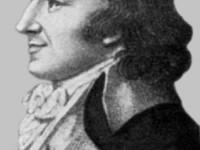
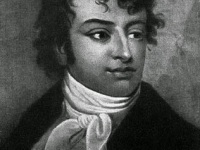
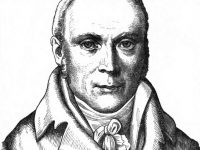
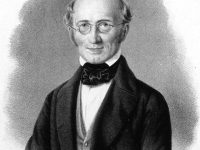

His stay in Italy was a great influence to Bakunin, since he developed his initial anarchist theories there. Bakunin founded the secret Alliance of Revolutionary Socialists along with like minded across Europe. The group was active all over the continent, opposing all kinds of hierarchical systems, authority and religion. Mikhail Bakunin rejected capitalism as he found it completely incompatible with everyone’s individual freedom. He also criticized many of Marx’s ideas, claiming that a communist state Marx’s pledged for would enforce a dangerous dictatorship. Bakunin returned to Geneva in 1867 to attend the founding congress of the International League for Peace and Freedom. He was elected to the Central Committee of the newly formed League, but his attempt to dissuade the organization from its moderate course was rejected by a majority of its members.